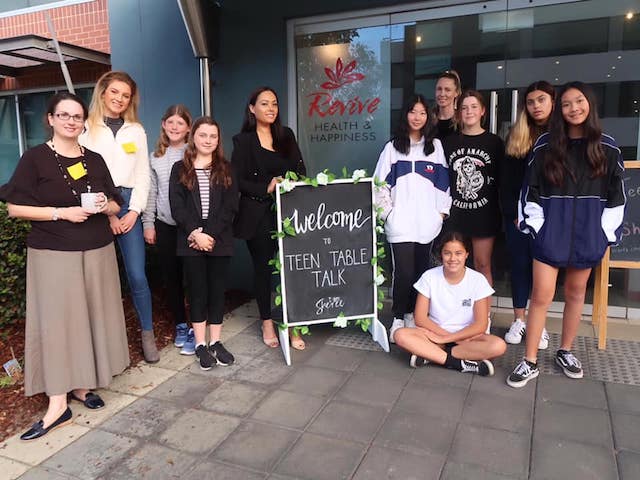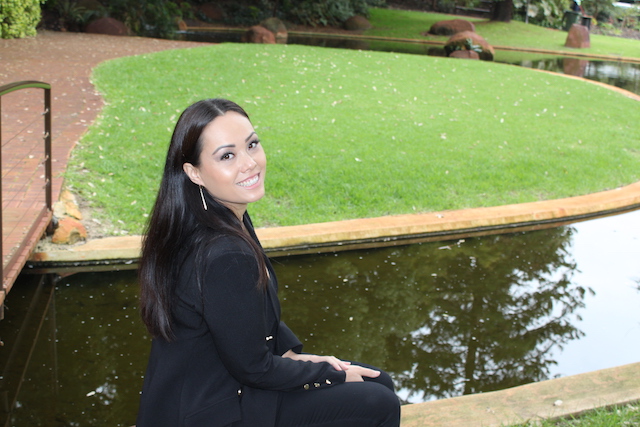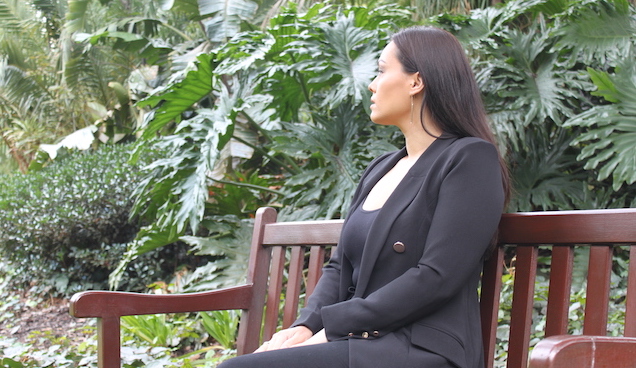“If I can say one thing to a teenage girl it would be this: in your first relationship, your heart might get broken, but staying in a bad relationship will damage your soul, deep down inside you, and it takes a lot longer to recover from that, than a broken heart,” domestic violence advocate and survivor Sheree Neto said.
Sheree is no stranger to the world of Family and Domestic Violence (FDV), and after growing up in a home fuelled with violence, pain and anger, the young girl feared for not only her life, but her future as she learnt how to protect her mother and her siblings.
She said she had to grow up very quickly and before she knew it, she had lost her childhood.
“As a child, I witnessed my own mother get abused by her partner for many years, to the point where I felt as though I could become a murderer during those frightful moments, at the age of nine”
Sheree Neto
“I held a knife to a grown man and tried to hurt him for hurting my Mum.”
In the years following these harrowing experiences, Sheree said she unknowingly fell into her own abusive relationship at the emotionally vulnerable age of 16, which would eventually result in 16 years in an ongoing cycle of abuse, with the father of her two children.
After escaping, Sheree refused to be silent and decided to become ‘the voice in the darkness’, to advocate for anyone affected by FDV, and that’s exactly what she did as she began on her ‘teen talk’ project, helping young girls talk about domestic violence, and provided them with that opportunity to be heard.
Sheree said that love shouldn’t hurt – not really.
“It shouldn’t hurt you so much that you have to hide your face or hide your arms or wear a jumper in the middle of summer to cover your bruises,” she said.
Sheree said she wanted to empower young women to learn how to value themselves, be a good friend and to know their worth.
Starting the ‘teen talk’ group through her Facebook page (a safe space for teen girls to talk about relationships), this idea launched into her ‘teen table talk’ workshops, expanding on an open environment for teen girls to share their problems, and support one another through their struggles.
Sheree said she didn’t want another young girl to go through what she had, and that was the big driving force behind the ‘teen talk’ initiative.

“I don’t want people to feel ashamed and broken – I was 16 and I’m still in recovery four years out of the relationship,” she said.
“It’s really important that girls understand that if they have been attacked or sexually assaulted, they’re not actually alone. They are not the first person to go through this and if I can help them, I want to be able to.”
Zonta House Women’s Refuge CEO Kelda Oppermann said it was important for young women to believe in themselves and trust their instincts.
“I would encourage all young women to talk – whether it be a trusted adult or good friends. Having good friends and trusted adults who love you and want the best for you is essential for a young woman’s emotional development,” she said.
Kelda said the statistics were worrying when it came to young people recognising FDV.
“A number of our young people are already exposed to domestic violence and they may or may not understand it is happening. Knowledge is power. By educating women on healthy relationships, consent and what supports are available, we are also creating opportunities for more conversations and for people to support each other,” she said.
“Through initiatives like ‘teen talk’, it is vital to provide opportunities for young women away from usual peer groups and circles to engage in activities focused on being themselves, and learning life skills.”
“Our young women are so bright and have endless potential, we need to support them to find their purpose and empower them to understand that anything is possible.”
Kelda Oppermann
Women’s Council for Family and Domestic Violence Services Policy Officer Kedy Kristal said that feeling empowered was important for women of any age.
“For a young woman today to feel empowered, for the most part she needs to be prepared to and supported to believe in her own value, her own ideas, her right to not conform, her right to challenge stereotypical expectations of appearance, employment, sexuality, education choices, reproductive choices, relationship options, her right to make mistakes, to take risks, and her right to expect to be treated by everyone as a valuable member of the human race,” she said.
Kedy said there was an immediate need for respectful relationship education in schools.
“The education needs to be for both girls and boys; it’s everyone’s responsibility to behave respectful in a relationship,” she said.
“We can only stop the cycle of FDV when men and young boys are educated/socialised to understand and change their thinking and behaviour that supports their world view that violence and abuse is an appropriate response.”

Sheree reflects on her own experiences where she had not known her true value, and lost herself in the process.
“Know your worth, what you deserve and don’t be scared to reach out if you or someone else you know is going through a tough time. Value yourself above all other things.”
Sheree Neto
Sheree hopes to bring her ‘teen talk’ program to high schools and she wishes to develop a one on one mentoring program in the near future. She also speaks at a number of different events, advocating for an end to FDV.
To get in touch with Sheree or to book her for an event, find out more here.
Words by Jacqui O’Leary
